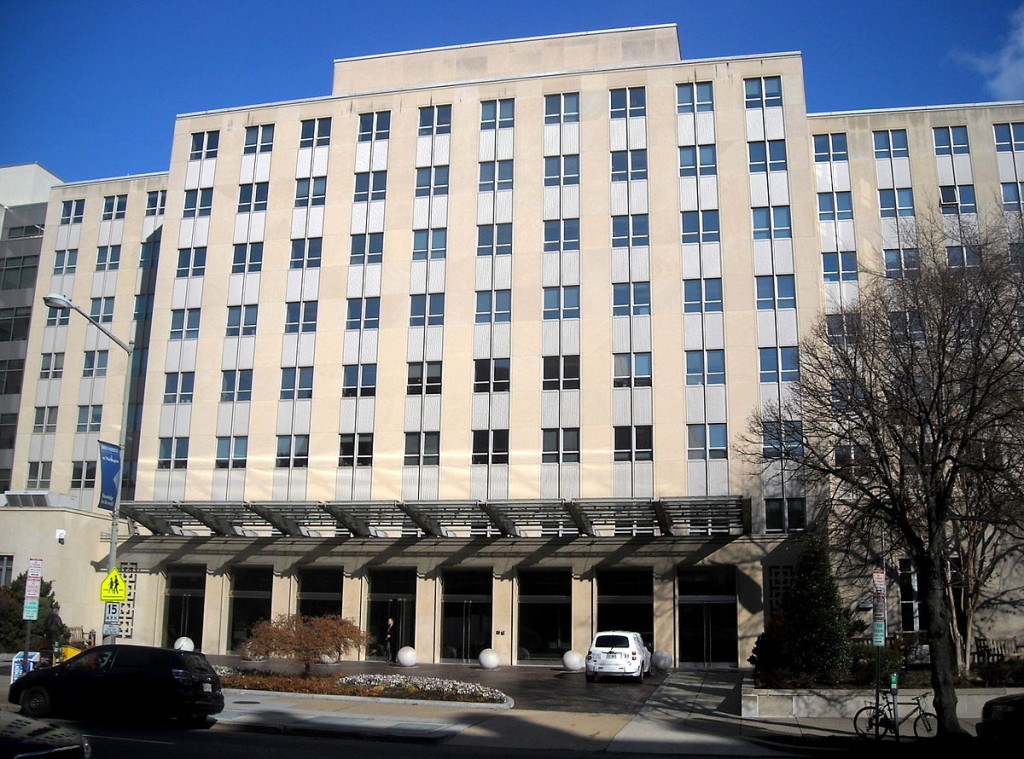One of the perennial questions of philanthropy is the return donors expect on their investments. One of the oldest—and most misleading—arguments people make is that a writer is obviously whistling to a donor’s tune. If you’re skeptical of the extent to which humans influence the planet’s climate, then obviously you’re a tool of Big Oil, the “Kochtopus,” or possibly both.
Of course this argument goes back over a century to when Rev. Washington Gladden condemned John D. Rockefeller’s giving as “tainted money.” In the 1980s, I remember one prominent conservative magazine of the time was famous for its sixty-hour weeks and for the staffers calming the donors by personally pointing out to them that they used the copier that a donor had given money for.
But it’s still the case that donors expect something for their grants. In a long and very interesting piece in the Washington Post, reporters Tom Hamburger and Alexander Becker look at the convoluted relationship between the Brookings Institution and its donors.
Doing a long piece on Brookings is an excellent idea, because it’s an organization that most people take for granted. I think Heritage is now larger than they are, but Brookings is a very close second in size among Washington think tanks, and with a giant endowment that their rivals envy.
Most of us know a few things about Brookings. We know they pride themselves on being “center” rather than left, and if you mention that Richard Nixon once tried to bomb the place because he thought they were too left-wing, they get very perturbed. It’s also clear that the place, institutionally, is very corporate, a place for suits rather than authors with strong individual voices. It’s not a place where people interested in the arts or culture work, and with the noted exceptions of E. J. Dionne, Robert Kagan, Jonathan Rauch, Stuart Taylor Jr., and Brookings’s president, Strobe Talbott, it doesn’t employ experts who write for newspapers and magazines that normal, non-wonky people read.
Oh, and try to find Brookings on the web by typing “brookings.com” and you’ll get a list of motels in Brookings, South Dakota. Brookings, thinking it’s a university, makes sure to let people know they are at brookings.edu.
Hamburger and Becker spend most of their article looking at who gives to Brookings and what they fund. Part of their critique concerns contributions by foreign governments. The government of Qatar, for example, has given so much that Brookings now has a branch in Qatar’s capital, Doha. (Brookings’s only other branch is in, of all places, the University of Nevada [Las Vegas].) I won’t touch on these sections because they’re a separate, although related issue, than the funds given Brookings by entities based in the U.S.
What the reporters found was that Brookings is involved in all sorts of areas that you wouldn’t expect them to be. Until he died last year, insurance magnate Peter B. Lewis was a prominent donor to liberal nonprofits and left-wing Democrats. He was also a fervent believer in marijuana legalization, and donated $500,000 to Brookings to study the politics of legalizing pot. Since then, Brookings has had several conferences and policy papers about marijuana. “When we were able to find a funder it was like, ‘Hell, yeah, this is what we wanted to do,” Jonathan Rauch told the Post.
The authors did find one case where a donor appeared to have excessive influence on a final paper. “Atlanta-area boosters” (the Post should have been more specific about who the funders were) donated $60,000 to Brookings in 2010 and in return received a paper calling for a passenger rail line between Atlanta and Macon, Georgia, that stated that passenger trains were “the most important transportation infrastructure for metro Atlanta and Macon in the early twenty-first century.” The report was never published or posted on the Brookings website, but was widely distributed in Georgia with the Brookings logo prominently displayed on the paper. Bruce Katz, director of Brookings’s Metropolitan Policy Program, told the Post, according to Hamburger and Becker, that the Georgia paper “had not met Brookings’s standards for review” and was “an isolated case.”
The Georgia rail paper clearly crossed a line, but the reporters were not able to find anything similar. For example, Grover “Russ” Whitehurst, who directed the research programs in the education department in the George W. Bush Administration, heads Brookings’s education program. Its donors include the Walton Family Foundation and the Gates Foundation. One of the more prominent Brookings education scholars, Tom Loveless, has written several pieces critiquing Common Core, a pet Gates Foundation project. The papers I have seen from Brookings about education seem thoughtful and sensible.
So what is the evidence that funders are pulling Brookings’s strings on education issues? Well, American Federation of Teachers president Randi Winegarten told the Post that she and her staff used to be invited to be on Brookings panels, but the invitations stopped coming and as a result they are now “no longer a real think tank exploring ideas.”
Well, boo-hoo. I remember in 1990 when John Chubb and Terry Moe’s pro-choice Politics, Markets, and America’s Schools was released. I went to the press conference, and I remember Ruth (daughter of Ben) Wattenberg, who once edited the AFT’s magazine, cackling loudly in opposition as the arguments for school choice were made. I don’t think there were any union officials on stage that day, and I suspect AFT members are as free to cackle in the audience today as they were a quarter of a century ago.
The Post series shows that donors are eager to give to Brookings, but that their firewalls seem reasonably secure. Whatever Brookings’s corporate culture is like, it’s not a place that is, covertly or overtly, controlled by its donors.







1 thought on “The Post turns its lens on Brookings Institution”